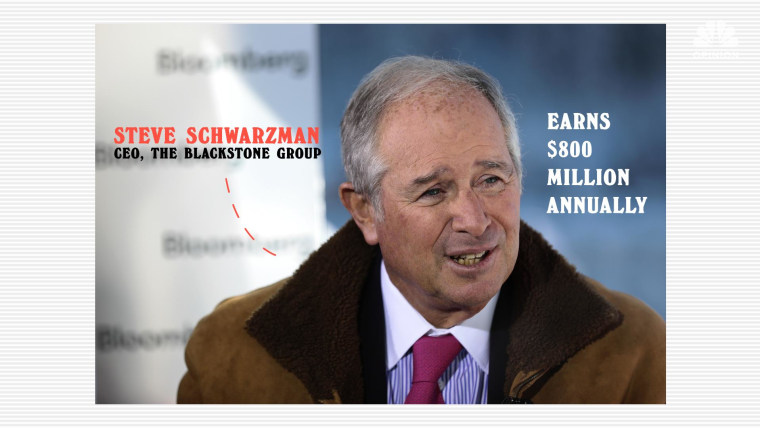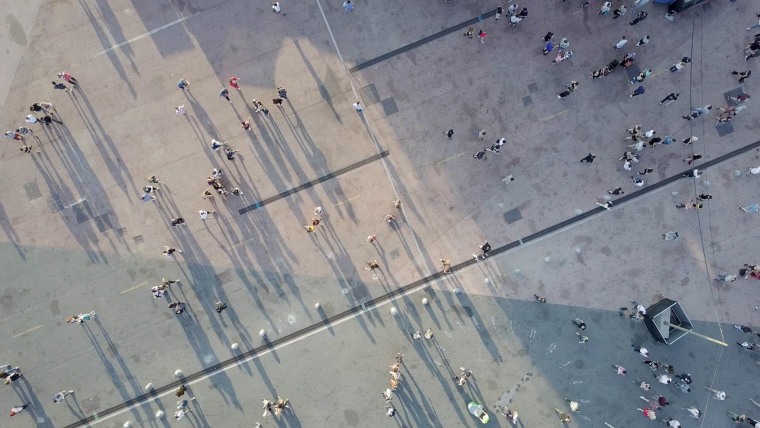At first it felt like a normal side effect of being employed. But buried underneath well-intentioned advice to "unplug from work!" and "enjoy your downtime!" came the unsettling realization that taking time away from work, be it a weekend or a day off for a doctor's appointment, felt almost more anxiety-inducing than the workweek itself. How can I take a break when I'm worried that a day off will lead me to fall behind and lose my job?
It's become clear this isn't just a paranoid quirk specific to overthinkers working multiple jobs, like me.
Two years ago, when I found myself in the emergency room trying to email my boss, I was struck by how my literal health emergency wasn't making me anxious — but my job was. What if I couldn't make it to work the next day? How many hours would I lose, and how would I pay for this without employer-provided health insurance? Since then, it's become clear this isn't just a paranoid quirk specific to overthinkers working multiple jobs, like me. It feels like a function of society's work precariousness.
A new year brings new pledges to improve our work-life balance amid chipper reminders not to make work your whole life. But it's the precariousness that has to be solved first. You can't outrun anxiety about taking time off without addressing the system that creates and perpetuates that anxiety.
It's impossible to divorce this precariousness from capitalism, including the embedded disparities in our workforce and work-related policies. If you're too worried about losing your job or having your hours cut to take a weekend off or take a breather, it makes sense that you'd just keep working. It's almost as if that's by design.
"It's not really taking a break if you aren't sure if you will have a job or enough shifts or freelancing clients when you return to work," Nisa Malli, a researcher at the Brookfield Institute for Innovation and Entrepreneurship, told me, explaining that this can absolutely raise the stakes and make taking time off more stressful — especially in industries in which you have to jockey to get enough shifts — for contract or freelance workers or when peak demand for your industry coincides with holidays. Malli explained that, as of November, around 6.7 million people were employed part time in the U.S. who would prefer to work full time — up by 2.5 million people since February.
Even for those with relatively secure or full-time employment, Malli said, without paid sick days or vacation, taking a break means a loss of income. "So this idyllic fiction of having a relaxing summer vacation or time off with your family over the winter break is a story we tell ourselves about our working lives and one that's reflected back at us by movies and TV that just simply isn't true for many workers in North America," she said.
So while anxiety about taking time off affects a lot of workers, some experience more tangible consequences than others. For gig workers or contract workers, taking a break can literally mean loss of income; for those in service work, the loss of a shift or tips can be detrimental; even those working some version of 9-to-5 jobs that allow for remote work feel the fear that comes from knowing their jobs may not exist shortly — or that they're inherently replaceable.
And that doesn't even factor in unemployment numbers or how many people are anxious over being unable to find work at all. There's already research on uncertainty-related anxiety about returning to workplaces during the pandemic, while thousands of workers' jobs or hours have been slashed, even as they risk their lives to go to work following months with no significant federal financial relief or rent relief. Look how long it took Congress to pass even the most basic Covid-19 aid bill in December.
The disparities run even deeper: Research shows that Black workers' benefits are less likely to include paid sick days and the ability to work from home, and according to data from the Economic Policy Institute, access to paid sick days is "vastly unequal." And that's just about sick days.
"Take time for yourself!" might sound fine in theory, but not if losing a shift means not being able to pay your rent; "work isn't everything!" falls a little flat when your boss threatens your job every time you don't respond to a late-evening email in a timely enough fashion. For many Americans, work is made up of inequities stacked on inequities, like a warped game of Jenga in which human beings are the pieces.
Personally, I am constantly on high alert. What if taking the whole weekend off makes me seem unproductive or disengaged to my boss or co-workers? I've lost enough jobs to know I'm replaceable. And yet, for a lot of workers, time off of any kind, even days they technically "have off," is impossible.
Orli (who asked that her last name not be used to protect her privacy), 36, a nurse working on a Covid-19 floor, said: "We don't get enough breaks. We don't get enough staff to help. We go home and we still hear the pumps beeping and the patients yelling." Orli was off for three days recently to take final exams for a master's program to become a family nurse practitioner. But she had to fight to get those days — she wasn't allowed any paid time off during December, and her manager refused to let her take unpaid time. She ended up switching days with co-workers to make it happen.
It's a grueling reality partly obscured by employer encouragement. The advice not to check email on weekends and to take time for yourself seems, on the surface, good and necessary — if we aren't reminding ourselves and one another of these things, who will? But the follow-through is flimsy, putting the burden back on workers to create breaks when they can and take them at their own risk.
And if we're always worried about having work, we'll always be working. When I asked M. Gloria González-Morales, an associate professor of psychology at Claremont Graduate University, about what well-being means in the context of work, she explained via email that "if we are stripped of the resources that we need to do our work or to live a decent life, there is not a healthy relationship with a situation that removes resources from your pool without replenishing them."
In other words, the precariousness has to be solved first; otherwise it's like trying to build a house without a foundation. Plus, most of the research in terms of the elusive concept of work-life balance, González-Morales said, comes from studies of white-collar knowledge workers.
The advice not to check email on weekends and to take time for yourself seems, on the surface, good and necessary. But the follow-through is flimsy.
"Unfortunately, there are many workers (essential workers, workers in blue-collar jobs, minimum-wage employees, gig workers) for whom the idea of work-life balance is utopic," González-Morales said. In regard to this stress, given the inequalities and discrimination embedded in the culture of work, it "leads to workers from historically marginalized groups, such as women, LGBTQ+ and POC, questioning their employability and their ability" to succeed and keep their jobs more frequently than non-marginalized workers. That adds up to a more stressful experience, which has to be managed. But investing mental and emotional energy in keeping your head above water can push you even deeper, González-Morales said.
Keeping us anxiously tethered to work ensures we'll keep working, because, for a lot of people, is there really another option? We need a solid safety net, Brookfield researcher Malli told me, one that ensures that losing income or employment doesn't have cascading effects on housing security or health security. "If your job is tied to your health insurance and your ability to stay in your apartment, any decisions that put that at risk, even like it gives you the feeling that it is at risk, becomes much more higher-stakes, because it has a cascading effect on every other element of security in your life," Malli said.
That long-shot reach for security is tethered to this anxiety — and the answer isn't to remind workers to take breaks that can feel impossible. While we know the holidays are far from a vacation for many, including those doing unpaid labor as caregivers, January and the dawn of a new year offer a wealth of messaging around self-care: how to adjust our expectations and manage our anxieties, even though the systems that worsen them aren't adjusting at all; how to care for ourselves because we know the powers-that-be won't; how to carve out time for you in the midst of a life that seems, too often, dependent on work. The pandemic isn't disappearing in 2021, and neither is the need to reconsider work policies and structures that don't so tightly tie our time, worth and lives to our jobs. This is a problem that won't be fixed by reminders to "make time for you."
"work" - Google News
January 03, 2021 at 04:30PM
https://ift.tt/3pK9qzQ
New year, same work anxiety. How capitalism makes work-life 'balance' feel impossible. - NBCNews.com
"work" - Google News
https://ift.tt/3bUEaYA
Bagikan Berita Ini

















0 Response to "New year, same work anxiety. How capitalism makes work-life 'balance' feel impossible. - NBCNews.com"
Post a Comment